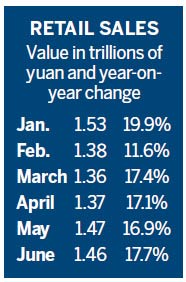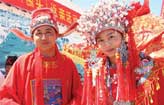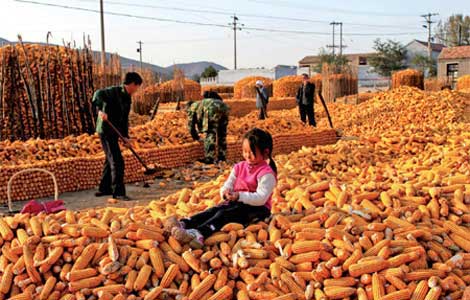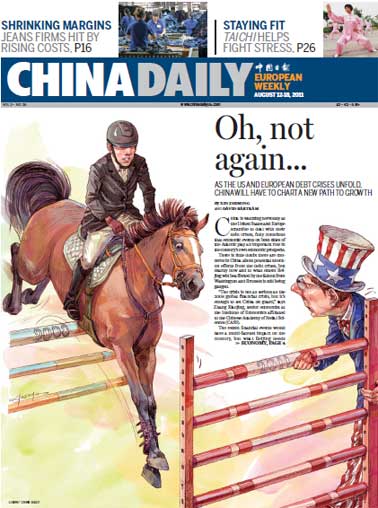Consumption: Time to open purse strings
Updated: 2011-08-12 11:25
By Wang Chao (China Daily)
Policymakers mull ways on how to boost domestic consumption
Spurring domestic consumption has been a knotty problem for policymakers in the last two years. But the real challenge for authorities this time around is how to increase consumption without relying too much on sweeteners like stimulus.
That challenge appears tough considering that household spending is just 35 percent of the gross domestic product, by far the lowest among major economies.
|
 |
"As I see it, the impact will be relatively small on essentials and other daily necessities like food and clothing. The real impact will be felt in real estate and car sales. The current crisis will make people turn more cautious on big budget spending."
But not all is lost, says Shao, as the government will loosen investment restrictions to prevent an economic downturn in China.
Li Xunlei, an economist at Guotai Junan Securities, says due to the slow growth in developed economies such as the US and Europe, the Chinese economy will depend more on domestic consumption.
"China is transforming from an exporter to a consumer, and this is the way out," he says. "With a solid retail sales base, China's resilience amid a global economic downturn will become stronger."
Some experts believe a weakening of the US dollar may turn actually to be good news for Chinese consumers.
Zhang Xin, an auto analyst from Guotai Junan securities, says imported cars could become cheaper and more affordable to Chinese consumers if the dollar weakens further.
"There is no doubt that the depreciation will have a negative impact on exports, but at the same time may be a catalyst for imports, especially import of luxury cars," Zhang says, adding that purchases of luxury cars have been seeing double digit growth rates in recent times.
But Zhang admits that the automobile industry may not get as many favorable policies this time around as it did in 2008.
"Cars can buoy consumption to a considerable extent. But it is evident that the government has decided to restructure the economy with an eye on clean, healthy and green growth, rather than just have robust GDP growth rates.
"Since 2009, incentives and subsidies on cars have gradually been withdrawn from the market to bring the industry more in line with the current oil supply and road conditions. Automakers and dealers may think such treatment is too harsh for this industry, but government officials believe it is a right choice for the overall well-being of the national economy."
Unlike the jittery auto industry, luxury good makers are not unduly worried over the impact of the debt crisis on their sector.
Ouyang Kun, president of the World Luxury Association (China Region), says there is hardly any correlation between luxury goods sales and the current market instability.
Ouyang says that even in 2008 when the financial crisis gripped the whole Western world, purchase volumes of luxury goods in China fell by just 10 percent initially, but recovered by over 10 percent in just six months.
Unlike in Europe and the US, where luxury goods are bought essentially for personal use, Ouyang says these products are symbols of social status in China. Chinese consumers are not loyal to any brand, and are partial to brands that can showcase their fortune.
"When the market is down, private entrepreneurs will need more luxury goods to showcase their confidence to clients," he says.
"For many consumers, luxury goods purchase is not just a one-time buy, but rather an ongoing effort."
Hu Haiyan contributed to this story.
E-paper

My Chinese Valentine
Local businesses are cashing in on a traditional love story involving a cow herder and a goddess
Outdoor success
Lifting the veil
Allure of mystery
Specials

Star journalist leaves legacy
Li Xing, China Daily's assistant editor-in-chief and veteran columnist, died of a cerebral hemorrhage on Aug 7 in Washington DC, US.

Sowing the seeds of doubt
The presence in China of multinationals such as Monsanto and Pioneer is sparking controversy

Lifting the veil
Beijing's Palace Museum, also known as the Forbidden City, is steeped in history, dreams and tears, which are perfectly reflected in design.
